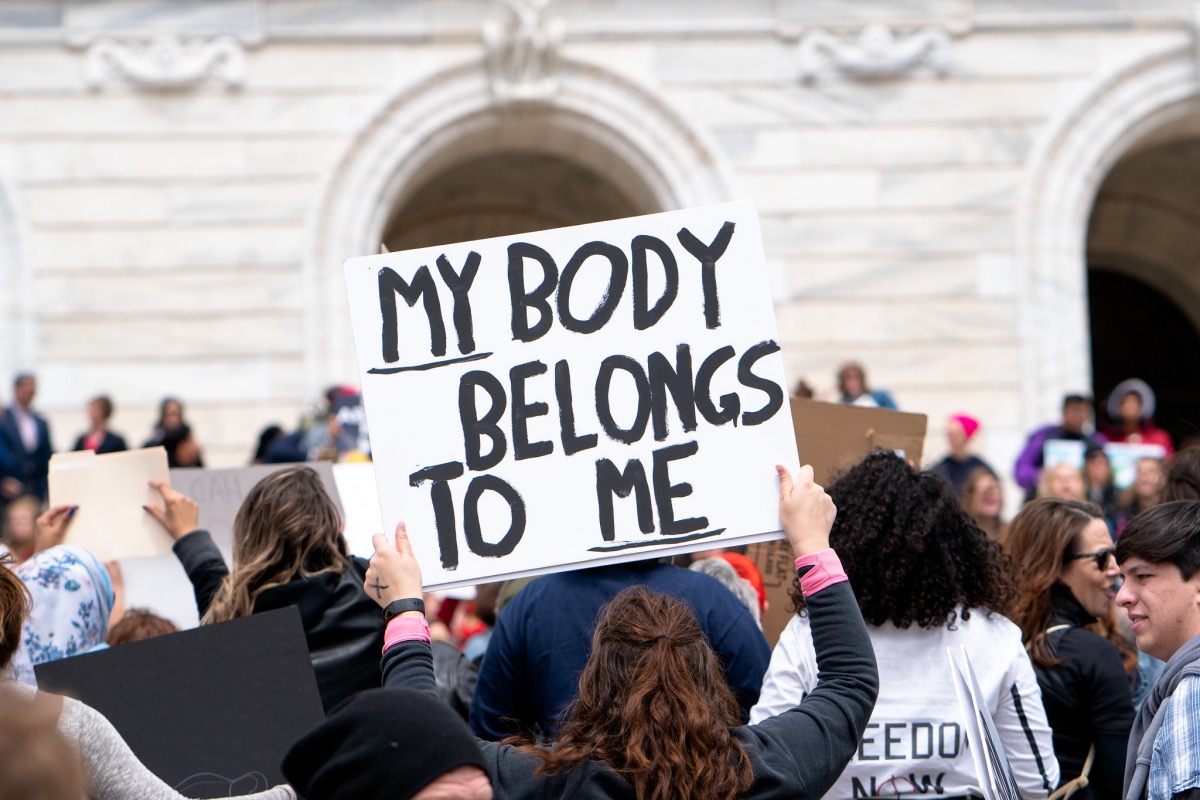By Carolina Franco and Cassandra Neyenesch
In the aftermath of the Texas abortion ban, politicians and talking heads rushed to point out that the impact of the ban would disproportionately fall on low-income Texans, particularly Black, Indigenous, and people of color. The repetition of this forecast was almost hypnotic, and the shameful statistics were uncontroversial—so much so that on Fox News, Penny Nance was able to spin the numbers to suggest that abortion rights comprised a genocide on the Black community.
“Yes, it’s a very real problem when only 13 percent of the population is having over 40 percent of abortions,” she said. “There’s something very wrong. Pro-life women want to love Black women and care for them. The other side wants to exterminate them.”
It is not our aim here —although it is tempting— to focus on the spine-chilling paternalism of a white woman claiming that by taking away Black women’s bodily autonomy she will “care for them.” Our interest in Nance’s statement is that it underscores a different problem: When we report identity-based disparities in outcomes without describing the legal, economic, historical, and social factors that contribute to them, this information can be interpreted in any direction.
Black scholars in the early 1900s proposed models of structural discrimination that explain and even predict the unjust differences between white and Black Americans. But systemic problems are seldom part of news reports on identity-based disparities. Instead, the message ends with the statement itself: “This will hurt marginalized, low-income, and BIPOC communities the most.”
Acknowledging inequities without a plan of action in itself causes harm. Frequent exposure to anti-Black, transphobic, and anti-immigrant messages in the media is associated with increased health and social problems in those same communities. It’s no surprise that hearing overt and repeated reports about terrible things happening to your community hurts. When your suffering is made public and at the same time is publicly ignored, there is but one conclusion to make—you don’t matter.
Let’s turn the focus to the invisible subject of the statement: the person who is not going to be affected by the abortion ban, or voter restriction laws, or the economic fallout of COVID, and so on.
The phantom clause attached to the back of “This will hurt (fill in any marginal identity) the most” is: but other people are going to be okay. What is the psychological impact of silently receiving and sharing the message “You will be okay,” not just once or twice, but repeatedly?
The first effect is to calm the nervous system, which is why we firmly tell children in times of crisis: “Something terrible is happening, but you are going to be okay.” By locating the danger elsewhere, we create a bubble of protection around the child and the people they love. The danger is out there—outside the bubble. On a primal level, you feel your protection most acutely when you become aware of the precarity of others.
The anti-choice movement seems to understand this dynamic better than progressives do. By extending the abortion ban in Texas to everyone who helps a person seeking an abortion, they are cynically betting that in the psychic battle between personal principles and safety, for most people most of the time, self-preservation wins. Their strategy disincentivizes privileged progressives even further from fighting for a right that, in fact, they themselves will continue to exercise, by attacking them in a place where they might actually be hurt: their bank accounts.
In a recent New York Times opinion piece, “What Structural Racism Really Means,” Jamelle Bouie argued, “We must remember, the problem of racism —of the denial of personhood and of the differential exposure to exploitation and death— will not be resolved by saying the right words or thinking the right thoughts.”
It is important to acknowledge that everyone is not equally vulnerable, but to what end? Are progressives willing to step out of the protective bubble and give up the relief of not being directly threatened?
***
Dr. Carolina Franco is a psychologist based in New York who specializes in trauma, addictions, gender identity, Sexual orientation, sexuality, parenting, ethnic and racial identity concerns, social justice work, immigration, women’s health, and adolescent development.
Cassandra Neyenesch is the author of Euphemia Fan: Spy Girl (Full Fathom Five, 2014) and the forthcoming novel, Perdita. She has written art and book reviews for Art in America, The Guardian, The Brooklyn Rail, and other publications.




[…] reportedly refused to treat patients with major pregnancy complications for fear of violating the state’s abortion ban, the Texas Medical Association said in a letter this […]